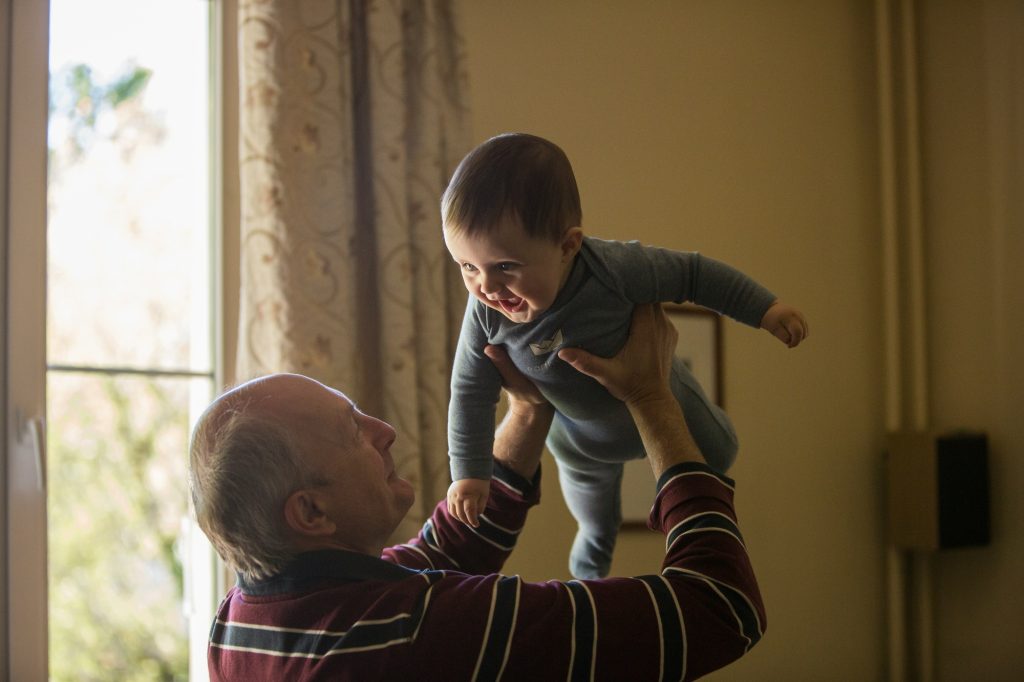
We all want our children to grow up surrounded by love. That often means encouraging relationships with extended family, including your own parents. But what if those parents are narcissistic?
Maybe they don’t yell, criticize, or act outwardly cruelly. In fact, they might be charming, generous, or full of praise, especially when other people are watching. But behind closed doors, their behavior can be deeply manipulative and emotionally damaging. And often, the harm they cause to their grandkids is subtle. You might even miss it at first.
Here’s the truth: narcissistic parents rarely change just because they’ve become grandparents. In many cases, their old patterns—control, guilt, attention-seeking, competition, and boundary-blurring—resurface, only now they’re aimed at your children.
Here are five quiet but powerful ways narcissistic grandparents can negatively affect your child’s emotional health and how to draw the line without the family fallout.
1. They Compete for Your Child’s Affection
At first, it may look like love. Gifts, attention, extra treats, special privileges. But underneath the surface is a subtle message: “I can make you happier than your parents can.” This isn’t about spoiling. It’s about control.
Narcissistic grandparents often treat their grandchild’s affection like a trophy. They want to be the “favorite,” and they’ll compete with you—directly or indirectly—to win it. They might override your rules, downplay your authority, or frame you as the “boring” or “mean” parent.
The child doesn’t see this manipulation. They just feel confused about who to trust. Over time, it can damage your bond and create division in your home.
2. They Use Your Kids to Meet Their Own Emotional Needs
Grandkids should never be emotional caretakers, but narcissistic grandparents often blur that line.
They might treat your child like a “mini therapist,” confiding in them about adult problems. Using guilt to get more attention: “I’m so sad you didn’t call me today,” or “I guess I’m not important to you anymore.” They even position themselves as victims to gain sympathy.
This emotional enmeshment isn’t just inappropriate. It’s harmful. It teaches kids that other people’s happiness is their responsibility. It creates anxiety, guilt, and pressure where love should be free.
3. They Undermine Your Parenting Subtly but Constantly
Narcissistic parents often think they know better than you. And they’ll let your kids know it.
“Your mom’s too strict.”
“Your dad doesn’t understand what kids really need.”
“Grandma would never say no to that.”
Sometimes, it’s said with a wink and a smile. But make no mistake; this is sabotage. It erodes your authority and creates a confusing double standard that makes discipline, routines, and boundaries hard to maintain.
It also teaches your child that rules are optional and that their loyalty should shift depending on who gives them what they want.

4. They Make Your Child Responsible for Their Reputation
Narcissistic grandparents care deeply about appearances. They want to be seen as the “fun one,” the “devoted one,” the “best grandparent ever.” So they’ll pressure your child to perform that role.
Smile for the photo. Say thank you even if you didn’t want the gift. Tell everyone how much fun you had, even if you didn’t.
This can force your child into emotional dishonesty. They learn that being polite matters more than being real. That making an adult look good is more important than speaking up. Over time, this pressure can shut kids down emotionally and make them doubt their instincts.
5. They Ignore Boundaries and Expect Access
Narcissistic grandparents often believe that being “family” means they’re entitled to full, unrestricted access to your child. They may drop by unannounced, press you for alone time, or disregard limits on visits, food, media, or discipline.
If you push back? They might call you controlling and ungrateful or accuse you of keeping the grandkids from them. They’ll frame your boundaries as cruelty and themselves as the victim.
This creates stress for you and tension your kids can feel. It also teaches them that boundaries are “mean” instead of healthy.
How to Protect Your Kids (Without Blowing Up the Family)
Dealing with a narcissistic parent is hard. Doing it while raising children adds another layer of emotional complexity. But it is possible to protect your kids, set limits, and preserve your sanity.
Here’s how to start:
- Name the behavior. You don’t have to diagnose them—but privately, get honest with yourself. Recognize the patterns, even if they come with smiles and hugs.
- Decide your non-negotiables. What’s most important to you? Respecting rules? Not being emotionally manipulated? Choose a few core boundaries and stick to them.
- Limit alone time. Don’t feel obligated to allow unsupervised visits if you’re concerned. Supervision can reduce the opportunity for emotional harm.
- Prepare your kids. As they grow, teach them about emotional safety, honesty, and boundaries. Let them know they can talk to you about anything—no matter who it involves.
- Give yourself permission. You don’t owe access to someone who continues to harm—even subtly. Protecting your child isn’t overreacting. It’s parenting.
Breaking the Cycle Is Hard But Worth It
You may have spent your whole life navigating your parent’s narcissism. And now, watching it extend to your children is heartbreaking. But here’s the good news: you have more power than you think.
You can break the cycle, set a new example, give your kids the safety, clarity, and love you may not have gotten yourself, even when it’s uncomfortable, even when it causes friction.
Your kids are watching. Let them see what healthy love looks like.
Have you dealt with a narcissistic grandparent in your child’s life? What helped you hold your boundaries?
Read More:
How Parenting Trends Are Changing the Way Kids Grow Up
Teaching Your Child That “Family” Doesn’t Mean “Tolerate Abuse”
Leave a Reply